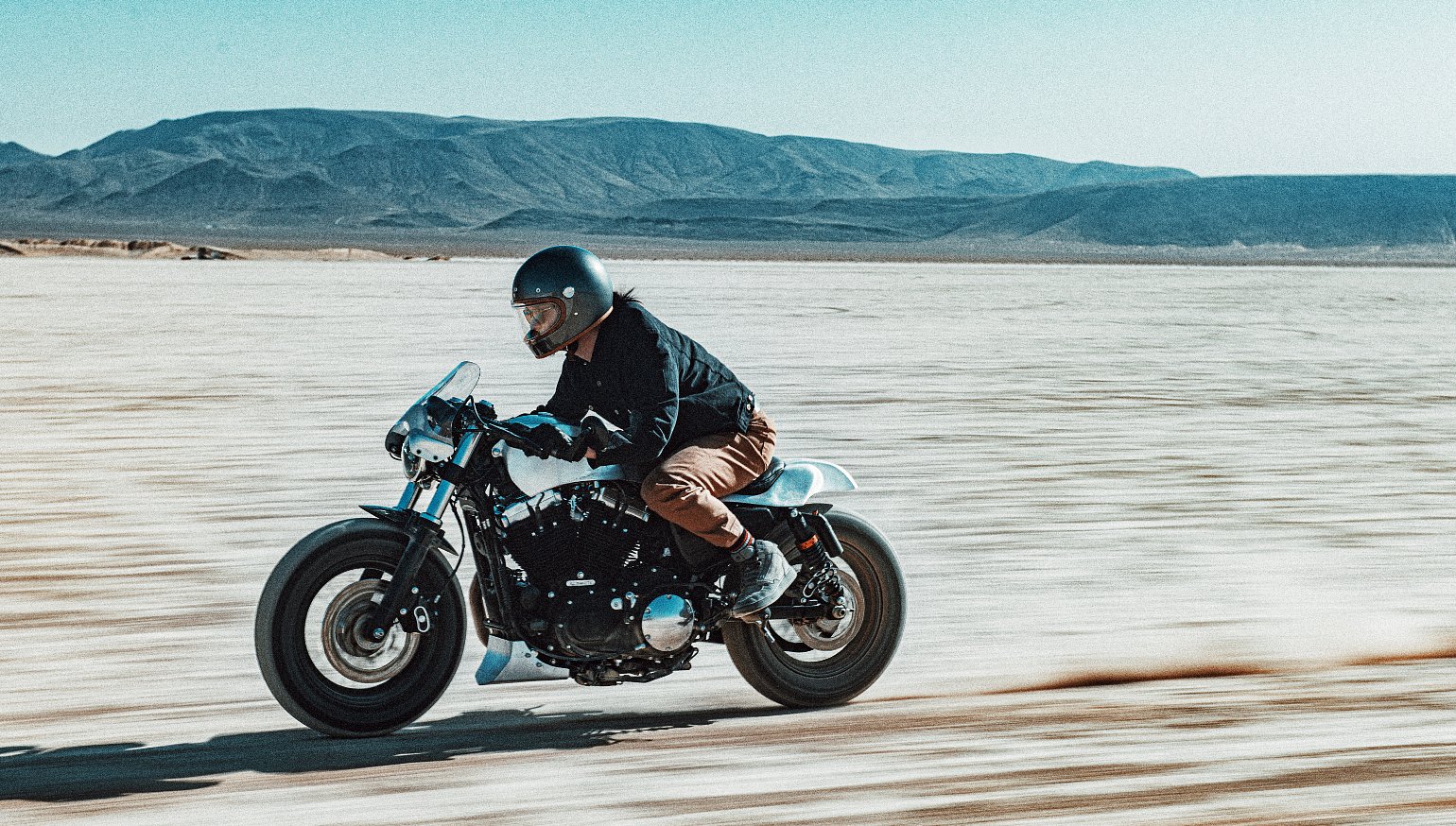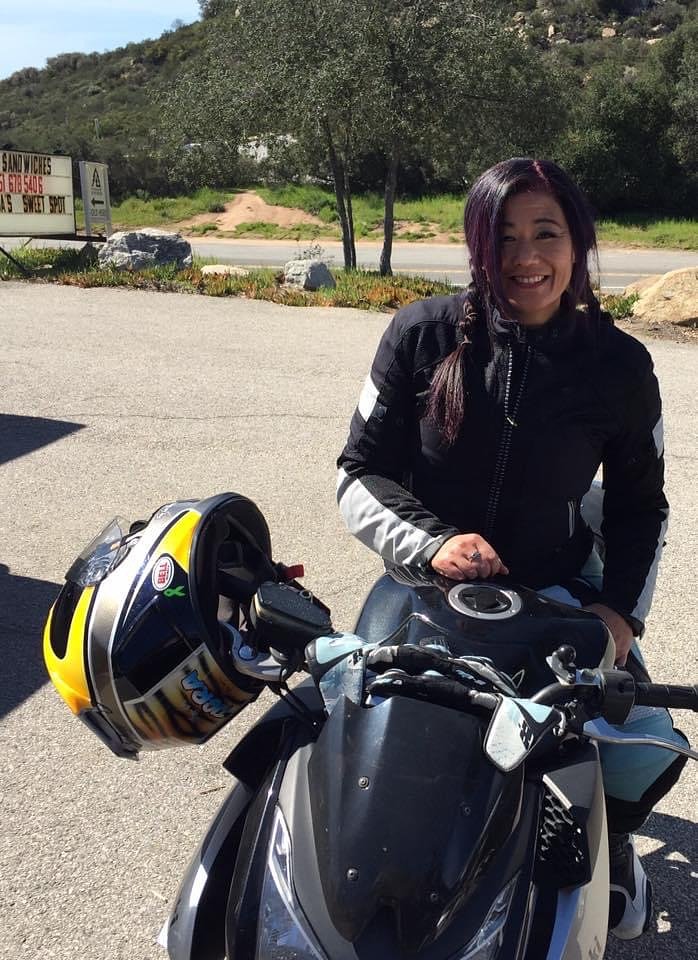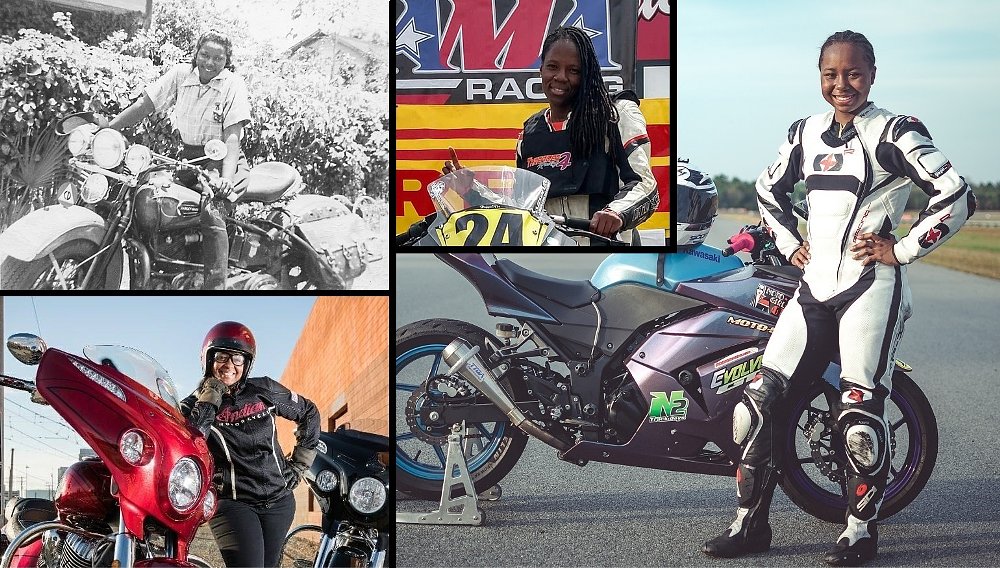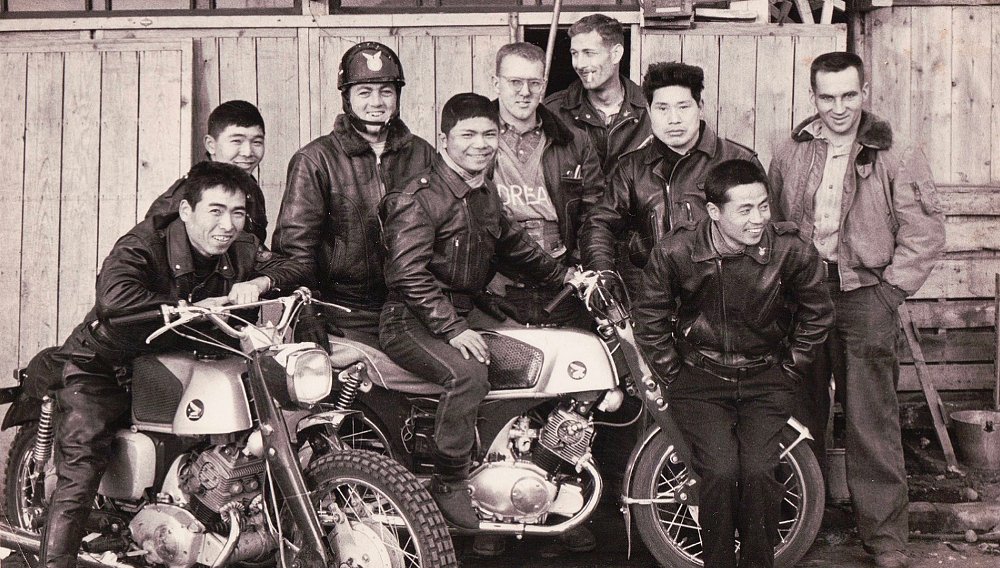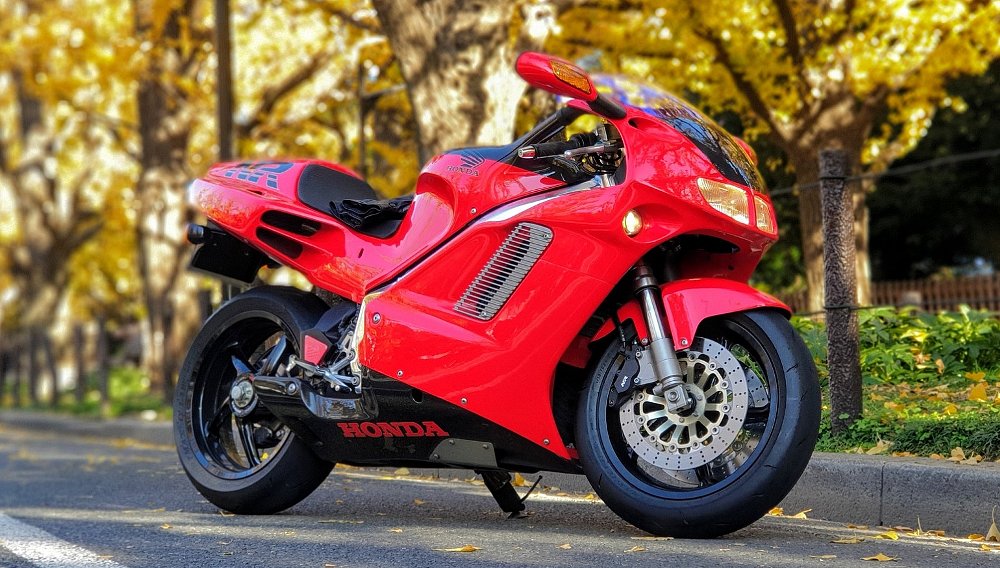The most casual observer can see that Asian companies — and, of course, the people who work for them — play a huge role in the global motorcycle industry. But as we wrap up Asian American and Pacific Islander Heritage Month, we asked a variety of motorcycle industry professionals working here in the United States to tell their stories.
Heritage can have a profound effect on a rider’s experience, which you’ll see in our contributors’ thoughtful responses to how their backgrounds and cultures shaped their riding careers.
Tigra Tsujikawa, community and event marketing consultant
I am the child of parents who were incarcerated in camps in California during World War II. Though they were American citizens, their Japanese heritage made them prisoners of the government for “the country’s protections and theirs.”
This is what shaped my generation (third on my father’s side and fourth on my mother’s) and determined that we had to work harder, do more, be loyal citizens, workers, family and friends. My first job in the motorcycle industry crystalized the fact that I am truly American-Japanese.
My parents weren’t excited about my first motorcycle — it really wasn’t an expected or accepted thing for the youngest daughter to do — but they had long realized that I was the one that was always going to do things differently than the others. I credit my mother for being my inspiration for strength, character and individuality, she showed me by example that it was OK to be who I was and that though it is not easy to be different, the more difficult path is often the right one.
I left the easy path when I got divorced, left the airline industry and moved to Southern California to get a job at Kawasaki Motors Corp., U.S.A. My family was surprised that I wanted to turn motorcycling into a career, but felt some comfort that my first job was with a well respected Japanese company.
This was my first time working with a staff from Japan and it was a bit of a weird shock that they acknowledged and saw me only as American, while some American staff were unsure if I was an American or Japanese. In a benign way, wasn’t this what my parents had faced?
The experience emphasized my heritage and made me think more about it. I quickly learned that the company culture was about people working together, bridging cultural gaps and uniting for common goals. While I learned so much about the products and business, I also learned more about who I was because, like me, the company had Japanese DNA but is distinctly American. I consider myself American-Japanese and I think of this each time I ride one of my motorcycles.
Initially, I thought my heritage was an obstacle in my journey as a motorcyclist, but as I have learned, it is really another way that I connect to motorcycling and the wonderful people I’ve been able to meet through it.
Andria Yu, Director of Communications, Motorcycle Industry Council
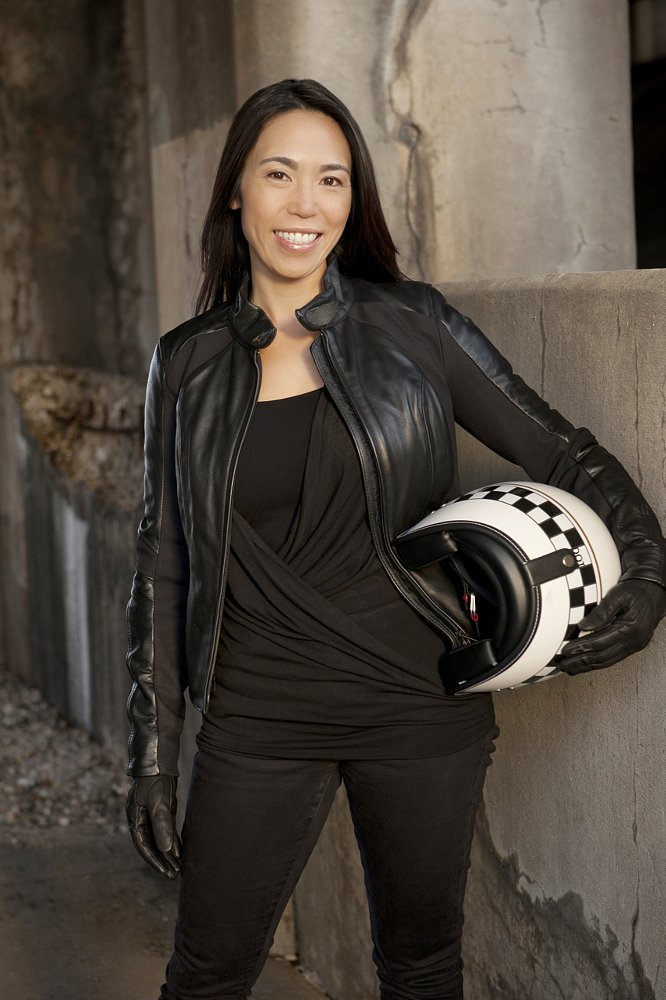
I've been riding motorcycles for about 20 years, but I didn't get into it until I was in my 20s and solidly on my own. No one in my immediate family rides, but they're not necessarily unfamiliar with two-wheelers. My parents moved to the United States from China (via Hong Kong, then Taiwan) in the 1960s. I was born in New York. One year, my parents decided that I needed to learn more about my Asian heritage, so they sent me to a summer camp in Taiwan. It was there that I got my very first ride — as a passenger on a scooter — and it was there that I fell in love with the feeling of riding. I also noticed just how many scooters there were in Taiwan and how normal it was for anyone, students to grandmas, to be using two-wheelers as transportation.
Back in the United States, I promised myself that the moment I could afford to, I would get my license and buy myself a bike. And eventually I did, after graduating college, landing my first real job, and getting my own apartment. In 2001, I took and passed my motorcycle licensing class and bought a 1986 Honda Rebel 250. I've now been working for the Motorcycle Industry Council and the Motorcycle Safety Foundation since 2016 and I'm also an MSF certified RiderCoach. What began as a passion is now my "job."
Motorcycling hasn't always had the best image in the United States, and it's still not quite considered a mainstream activity. As part of my job, I try to get more people to realize that motorcycles and scooters can be for everyone, and that the motorcycling community is a welcoming, inclusive place. You're not changing your lifestyle to become a motorcyclist, motorcycles and scooters just augment your current lifestyle. Just ask those grandmas riding through Taiwan!
Greg Tada, motorcycle designer, Piaggio Advanced Design Center
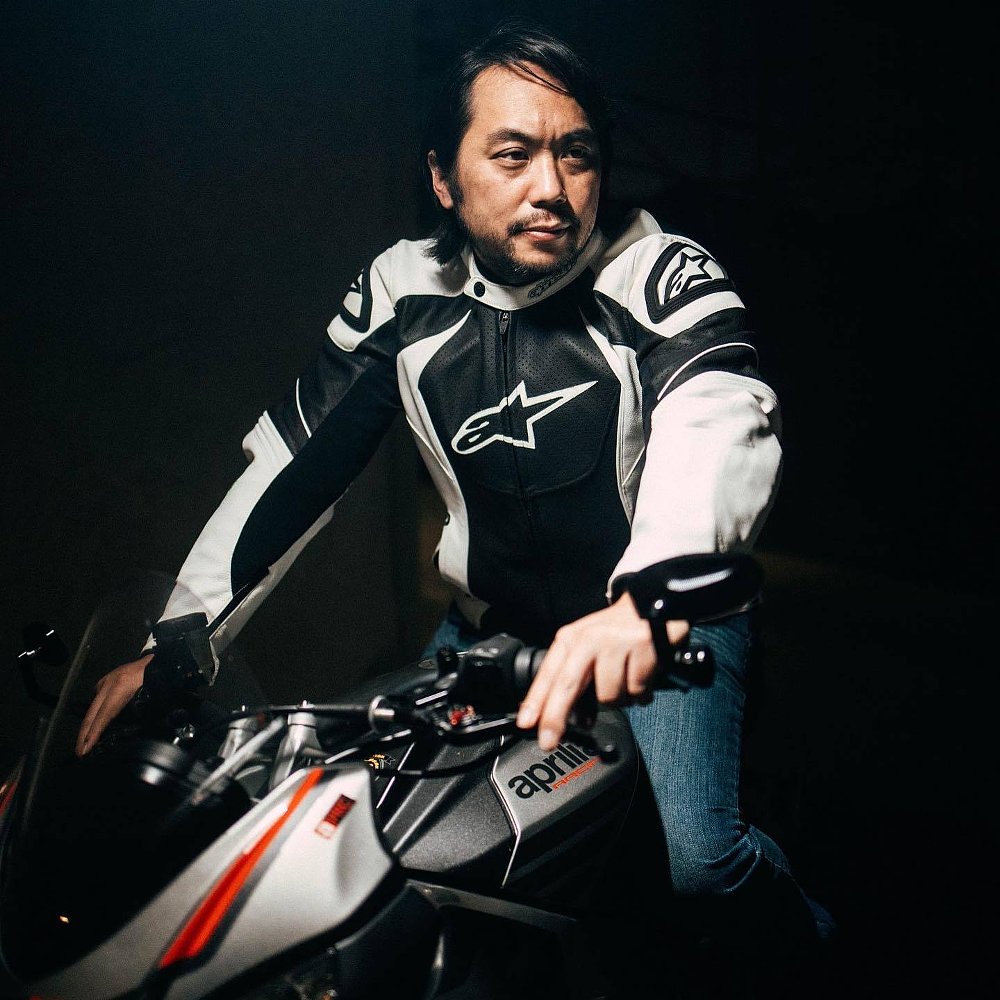
I bought stacks and stacks of motorcycle magazines growing up and lusted over bikes like the ZX-7R, GSX-R750 Slingshot, GPZ900R, and CBR600F2. It was a source of pride to see such amazing machines coming out of Japan and rolling down the street. Then, in high school, I went on a family trip to Japan. My eyes were opened to a whole new world of bikes that I had never seen in Utah: KR1S, RGV, NSR, etc. That week I lost any chance of shaking this obsession.
In a strange way, the Japanese motorcycle factories became my role models. My obsession led me to pursue motorcycle design, and after graduating from Art Center College of Design it eventually led me to Japan, working at Kawasaki's studio in Akashi. My Asian pride grew exponentially. I learned and experienced so much there, and I'm so glad that Kawasaki gave me the opportunity. I'm back in the States now, but I'll always treasure the time I had to connect to my heritage and share it with my family.
My time in Japan also opened my eyes to the rest of the Asian motorcycle industry. India, China, Thailand, Malaysia, Vietnam... the two-wheeled passion there is unlike anywhere else. It's incredible. Motorcycles are a way of life and society there, and I envy that. It's clear that Asians will continue to play a huge role in this global industry for decades to come.
So yeah, you could say that motorcycles were the vehicle for my Asian pride.
Derrick Lau, Social Media Manager, ICON Motorsports
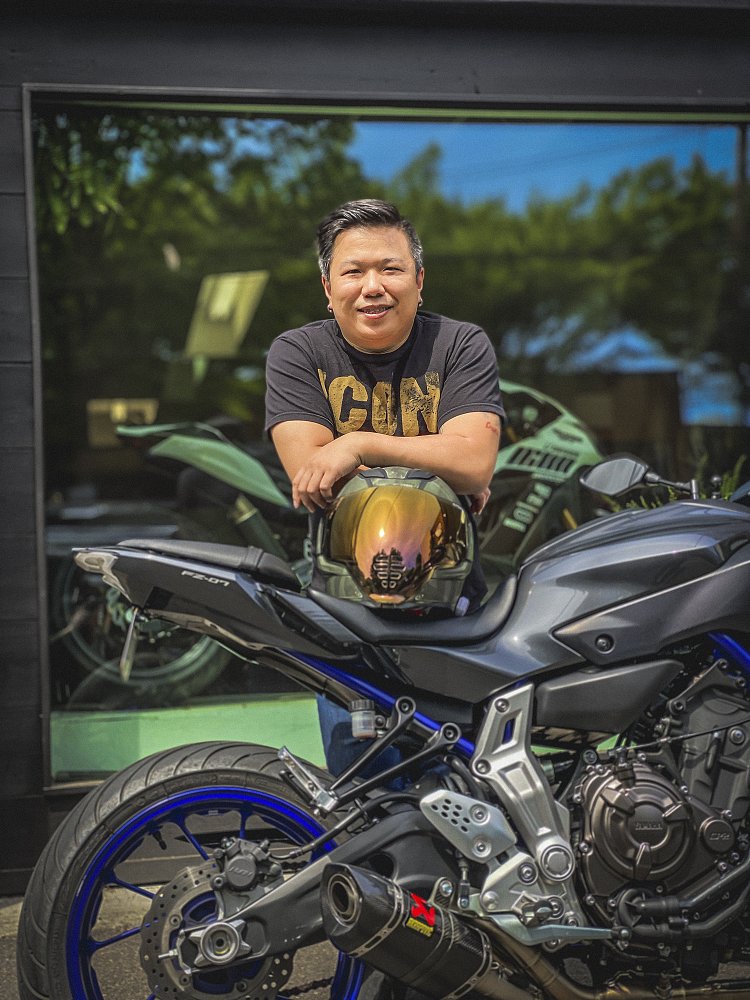
When I was asked how my cultural heritage connects to my passion for motorcycles, it was difficult for me to draw a straight line to connect the two. Growing up in Portland, Oregon in the 1980s and '90s, I assume I had what you would call a “typical” upbringing for most first-generation-born Asian Americans who live in a fairly non-diverse community. Being the “token Asian” or the “Chinese kid” and perpetually being reminded that I was different was kind of the norm. At a young age, it seemed like there was always a battle of assimilating yet holding on to my cultural heritage, in addition to the typical struggles any young person has with identity.
However, as I moved into adulthood I can look back and see how my ethnic and cultural differences led me to where I am today. Without knowing it then, I embraced being different through my passions and hobbies. I just seemed to be gravitate towards anything my peer group wasn’t necessarily doing in masses and it was empowering. This, of course, led to vintage scooters. A nice niche that was a great introduction to two wheels propelled by an engine. Scooters eventually and naturally evolved into motorcycles, which provided an even greater sense of freedom. With benefit of hindsight, I can see that the feeling of empowerment and individualism is what drew me into motorcycling and, even more so, I can see how this attraction is deeply rooted in my experiences and cultural heritage. And here I am today, working in an industry I love with a great company like ICON Motorsports.
Joanne Donn, GearChic
As a young girl, my role models were my family members. Specifically, my mother. Korean culture fosters a very, very strong work ethic. You work hard, very hard and you keep at it until you succeed. If you are committed, faithful and dedicated, you will succeed, even if you don't think you will.
Growing up, I saw my mother take care of everyone and everything, and at the same time I saw her work 50-to-60-hour work weeks to help support our growing family. Although motorcycling in and of itself wasn't really in my home growing up (other than on TV and in the movies), I think that seeing the way my mom helped everyone around her had a profound impact on my subconscious. That definitely translated into my initial motorcycle experiences as I learned to ride a little scooter over 15 years ago and then a motorcycle quickly thereafter. I figured out very quickly that not only did I love riding fast on two wheels, but I also loved talking about it just as much, if not more. My passion for riding combined with my work ethic and upbringing has helped me carve out a career that I never thought possible. I think that seeing my mom help provide and care for all of us translates heavily into my day to day work at RevZilla.
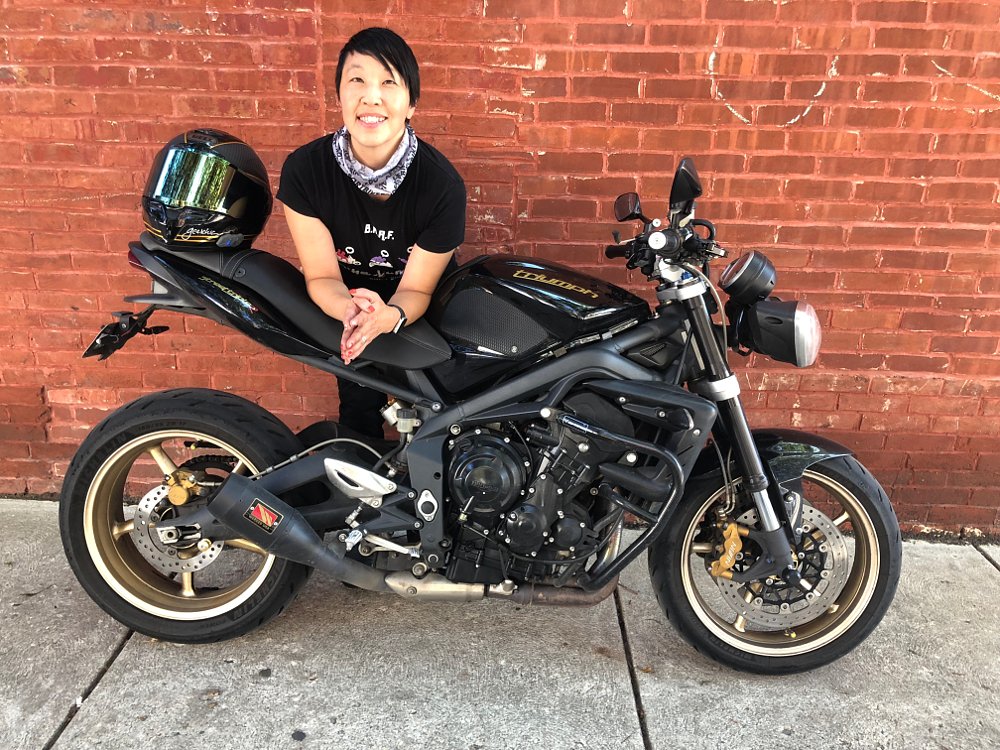
When helping someone finally find the best fitting helmet or jacket, I am truly lucky to work in a place like the RevZilla Showroom where I can help that one person who really needs it in that moment. I know my parents would have strongly preferred I pursue a more "traditional" career, like doctor, lawyer, etc. to help people, but so far I find that this path has given me so much more than I could have ever asked for.
I'd like to think that helping someone find the best fitting helmet and riding gear means one less rider who might be seriously injured or hurt while pursuing their passion on two wheels.
David Chang, founder, Cafe Racers of Instagram
Over the past years, my work with Cafe Racers of Instagram (CROIG) connected me with different motorcycling events, many being in Southeast Asia. From judging shows, organizing group tours around Northern Thailand, and delivering water filters to rural villages, I've found myself wanting to spend more time overseas.
My family has roots in Hong Kong and Taiwan, and personally, I’ve fallen in love with Thailand. Being able to ride through that area was eye-opening to me. I was invited to be a judge for a show in Bangkok, so I got to spend a month and a half out there, also visiting Malaysia and Vietnam. I wanted to return this year but that didn’t work out. I still wanted to find a way to contribute to the people there. This is me trying to figure out how to turn CROIG into something more than reposts of custom motorcycles, something with more purpose that involves community and giving back.
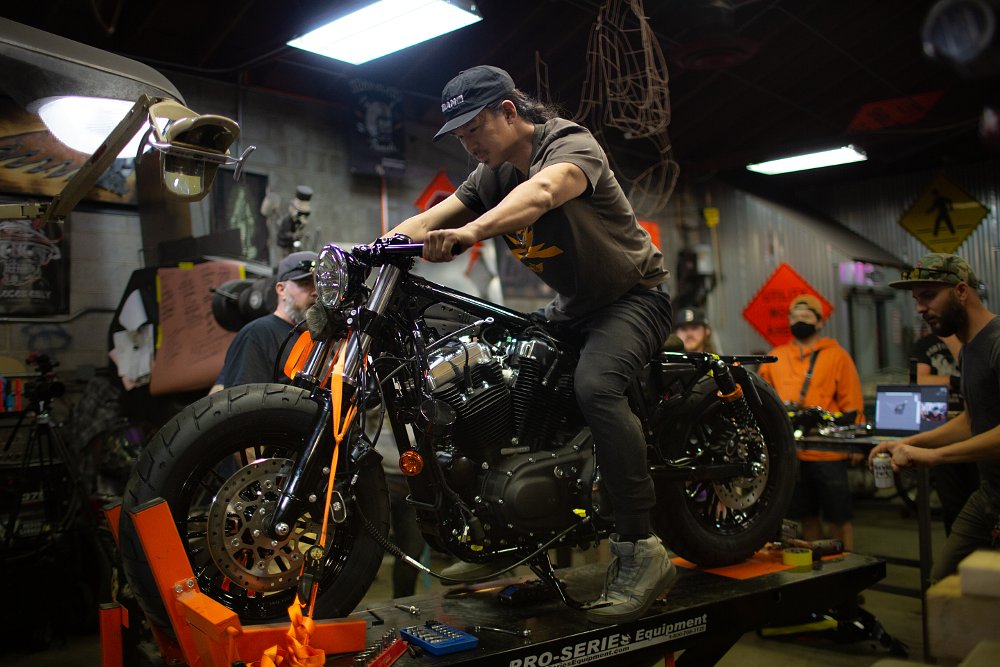
This year, I've launched the Built for Good campaign, where we built a custom motorcycle in a week and now we're raffling it off to raise money to provide clean water for those in need through Waves for Water, a fundraising organization started by surfer Jon Rose. My last trip with Waves for Water saw 55 water filters delivered as I toured. Seeing the impact firsthand is just incredible. All the proceeds from Built for Good will be donated directly to the charity.
Motorcycles are usually built for fun, for hobbies… This one is built with a purpose. My time in Southeast Asia encouraged me to take this to the next level.
Allan Aguas, Distinguished Gentleman’s Ride SF organizer, Cafe Racers of the Peninsula admin
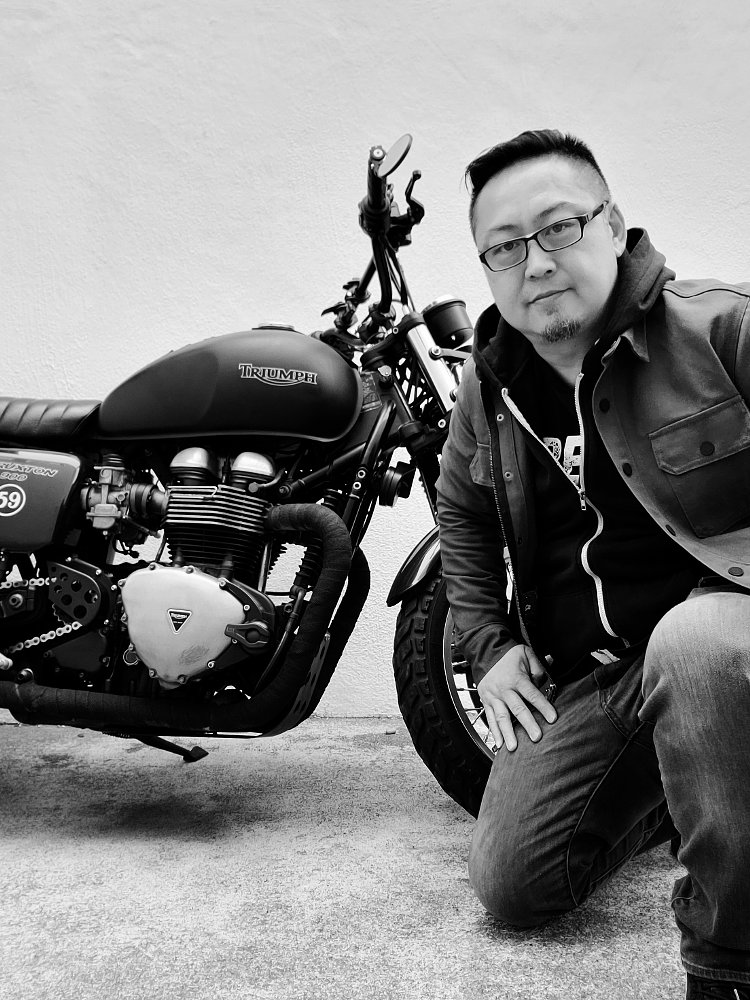
Here I am now, a veteran rider of over 25 years. I am an active member of the San Francisco motorcycle community involved with The Moto Social, co-host/organizer for the 2021 Distinguished Gentlemen’s Ride for San Francisco, one of the lead administrators of the riding group Café Racers of the Peninsula, California Fil-Am Motorcycle Society and the community action group, Riders Ending Violence which is primarily comprised of AAPI members.
I’m technically a first-generation immigrant from the Philippines. I arrived on U.S. soil at just over one year old. My father used to regale me with stories of his riding adventures back in the motherland and how a bad accident steered him away. So from the beginning, my interest was piqued.
As I grew up in the 1970s, my biggest hero was Evel Knievel. Watching Evel make those jumps seemed like magic as he glided over countless buses or cars. To this day, my most favorite toy is still the Evel Knievel motorcycle.
In my school days, my parents promised me a dirt bike if I did well in school. Impressionable and trusting, I did my best. Fast-forward to high school and still no dirt bike. What my parents didn't know was that I learned to ride from a friend who had one. The moment I got on and learned to ride down the street, I was totally hooked. One day, I told myself, I will have my own bike. “Not while you’re under my roof,” my mom would always say. So guess what? Soon as I moved out, I bought one. My first bike was a 1992 Honda CBR600 F2. Red, sleek, fast and fun! And so my long love of motorcycles was cemented.
So how does heritage all fit in? Motorcycles are embedded in Asian and Asian-American culture. It’s a main source of transportation in the islands, because of its convenience and affordability. For me, it’s how I give back to my community. Motorcycles are not just a hobby to me. It’s a lifestyle and it’s a community. It’s a great way to bring people of similar interests together, regardless of ethnic and cultural differences. Using motorcycle rallies and rides to raise awareness and inspire action in the community is something I’m passionate about as it combines two things that are most important to me: riding and community-building.




